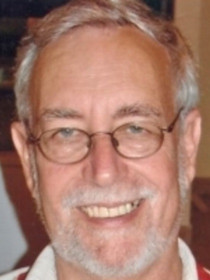Howard Rosenthal passed away on July 28, 2022. Read Rosenthal's obituary.
About Howard
Rosenthal’s areas of research include political economy, American politics, political methodology, comparative politics. He is currently an editorial board member for the journal, Economics of Governance, and serves on the advisory board of VoteWorld, a website that archives, maintains, and distributes datasets of roll-call voting from legislative bodies throughout the international community.
Contributions
In the News
Publications
Argues that between 1991 and 2012, the political alignment of U.S. physicians shifted from predominantly Republican toward the Democrats. Discusses how variables driving this change, including the increasing percentage of female physicians and the decreasing percentage of physicians in solo and small practices, are likely to drive further changes.
Demonstrates how political bubbles helped create the real estate-generated financial bubble and the 2008 financial crisis. Argues that similar government oversights in the aftermath of the crisis undermined Washington's response to the "popped" financial bubble, and shows how such patterns have occurred repeatedly throughout US history.
Explores five possible reasons why the U.S. political system has failed to counterbalance rising inequality.
Addresses critical issues in contemporary American society, ranging from the making of public opinion, the nature of the presumed social contract between government and its people, the special place of corporate governance and institutional investors with respect to social stability, the search for educational equality in a world of growing income disparities, the huge run up in prison populations and the decline of American citizenship, and not least, the ethical issues of selfless and selfish motivations with respect to organ transplants, and the sale of body parts.
Analyzes over 13 million individual roll call votes spanning the two centuries since Congress began recording votes in 1789. By tracing the voting patterns of Congress throughout the country's history, the authors argue that, despite a wide array of issues facing legislators, over 81 percent of their voting decisions can be attributed to a consistent ideological position ranging from ultraconservatism to ultraliberalism.
Argues that increasing polarization in recent decades has been closely accompanied by fundamental social and economic changes--most notably, a parallel rise in income inequality. Examines the relationships of polarization, wealth disparity, immigration, and other forces, characterizing it as a dance of give and take and back and forth causality.
Demonstrates how weak credit markets are impeding the social and economic mobility of the needy. By detailing the many disadvantages that impoverished people face when seeking to borrow, highlights a significant national problem and offers solutions for the future.
